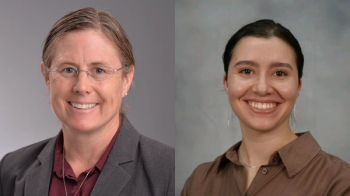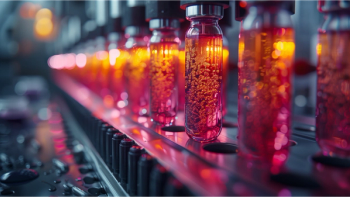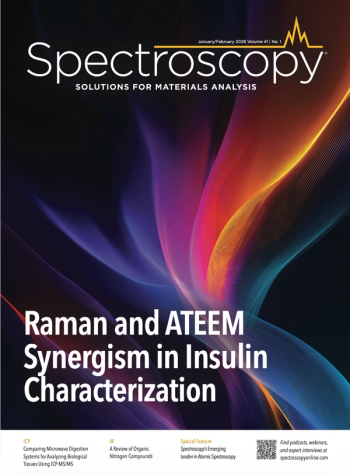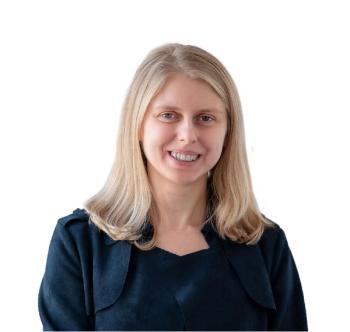
Spectroscopy Author Guidelines
Spectroscopy welcomes pitches and manuscripts that describe techniques and applications of all forms of analytical spectroscopy, particularly those that are of immediate interest to users in industry, academia, and government.
Information for Authors
Spectroscopy accepts a variety of contributed articles including technical and review articles, feature stories and profiles about trending topics, blogs, and peer-reviewed content. The editors also review press releases for publication. When submitting an article to Spectroscopy, please note that we cannot guarantee publication in the print magazine. If you would like your article to appear in print first, please indicate this in your initial email. Print-first articles may experience a wait time of several months.
We are seeking articles that cover important topics in analytical spectroscopy. Including, but not limited to, method development, applications, sample preparation, data analysis, new technology, education, artificial intelligence, instrumentation, business, and more.
The techniques covered in Spectroscopy include electronic and molecular spectroscopy techniques such as Raman, infrared, near-infrared, terahertz, fluorescence, UV-vis, color, and nuclear magnetic resonance (NMR) spectroscopy; and atomic spectroscopy techniques such as inductively coupled plasma–optical emission spectroscopy (ICP-OES), inductively coupled plasma–mass spectrometry (ICP-MS), laser-induced breakdown spectroscopy (LIBS), atomic absorption spectroscopy (AAS), atomic fluorescence spectroscopy (AFS), and X-ray techniques, such as X-ray fluorescence (XRF).
Papers on organic mass spectrometry, including direct MS and MS coupled to separation techniques like liquid or gas chromatography, should be submitted to
Manuscripts are reviewed with the understanding that they have not been published previously and are not under consideration for publication elsewhere. Authors are responsible for all statements made in their work. All manuscripts are subject to peer review and copyediting. Authors of accepted papers will have an opportunity to review galleys. If illustrations or other material in a manuscript have been published previously, the author is responsible for obtaining permission to republish.
Types of Manuscripts
Technical articles
Technical articles describe improved methods or improvements in techniques and should be of immediate relevance to spectroscopy users. Authors should not make comparisons between commercially available products from different manufacturers. Most manuscripts for regular issues of Spectroscopy should be 2500–3500 words long plus up to six figures and tables (combined total).
Review articles
Review articles survey recent developments and the state of the art of current techniques or emerging technologies. We urge authors to submit a proposal to the editor before completing a manuscript.
Feature articles
A feature article should provide a new or interesting analysis of a trend in analytical spectroscopy. These articles should be no more than 2,000 words in length and include at least three sources.
Tutorials
A tutorial article should be a short primer or tutorial on (a) an analytical spectroscopy technique generally; (b) a specific aspect of a technique; or (c) the application of a technique to a certain type of analysis. Tutorials should be approximately 800–1500 words long, including a very short abstract or “teaser” of ~3 sentences, plus up to a combined total of 2 figures and tables. We suggest that tutorials follow one of two types:
Key Steps to Follow: List and describe five or more of the most important steps for using the technique for the first time (or each time).
Key Errors to Avoid: List and describe the five or more most serious mistakes users of the technique make that result in errors or problems.
Blogs
Blogs should be short in length (about 500-700 words) and should explain, in a conversational tone, a topic that impacts analytical spectroscopists and their work. These articles run exclusively online.
Technical Manuscript Submission Process
For papers with multiple authors, designate a single author to handle correspondence. Include this author's e-mail address in the manuscript and in the e-mail message that accompanies the manuscript. Before submitting the completed work, authors are urged to review manuscripts for clarity of expression, details of grammar, and typographical accuracy. Authors for whom English is a second language are encouraged to seek writing help before submitting papers.
Key words or phrases
All manuscripts should include a list of approximately five key words or phrases. Technical manuscripts should be presented in an abbreviated scientific format and should include the following:
Abstract: Very brief (100-150 words). Mention subjects studied, methods used, principal observations made, and conclusions reached.
Introduction: Without repeating published information, discuss the relationship of your work to previously published work. Describe the novelty or importance of the research presented.
Experimental: Present enough information that an experienced spectroscopist would be able to reproduce the work. List those components of the experimental design that are of a specialized nature, including equipment manufacturers names and locations in parentheses after reference to specific types of equipment. Do not list equipment, reagents, or procedures that are normally found in the laboratory or that are common knowledge in the field.
Results and discussion: Focus your comments on the needs of users of spectroscopy and stress the practical importance of your findings.
Conclusion: Summarize the main points of your article, and state important conclusions or recommendations.
Formatting: Please see our quick formatting guide, linked below, for more information on how to format your manuscript, including figures, tables, and references.
Where to Submit Manuscripts
Send manuscripts for Spectroscopy to Caroline Hroncich at
Newsletter
Get essential updates on the latest spectroscopy technologies, regulatory standards, and best practices—subscribe today to Spectroscopy.




